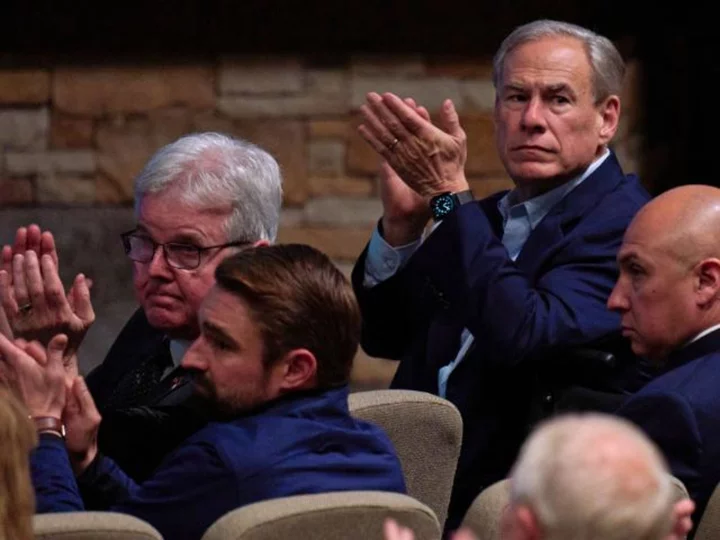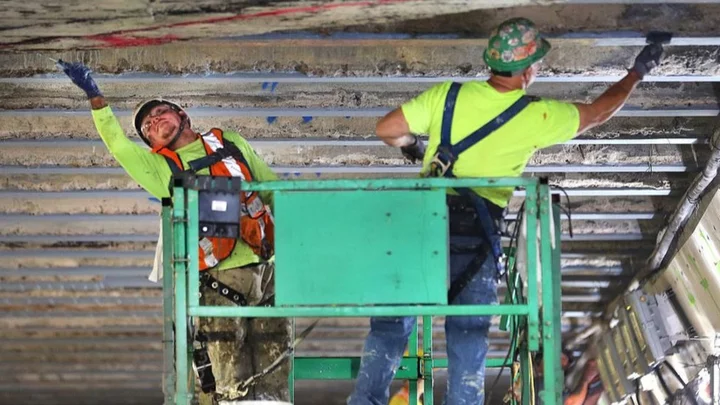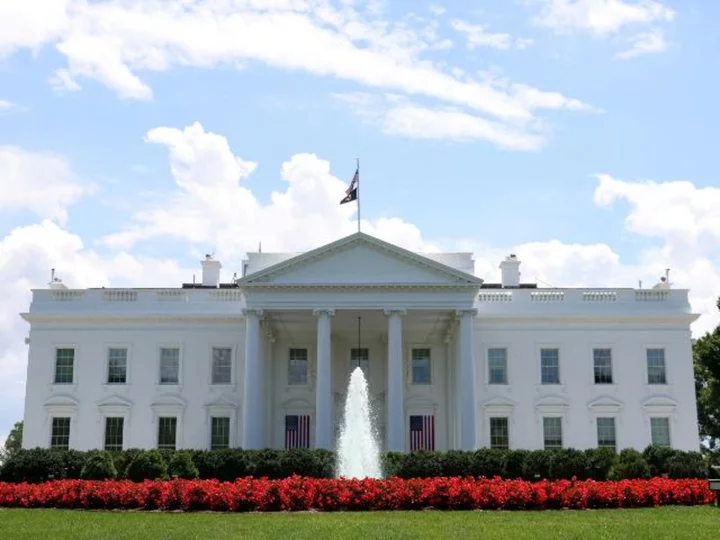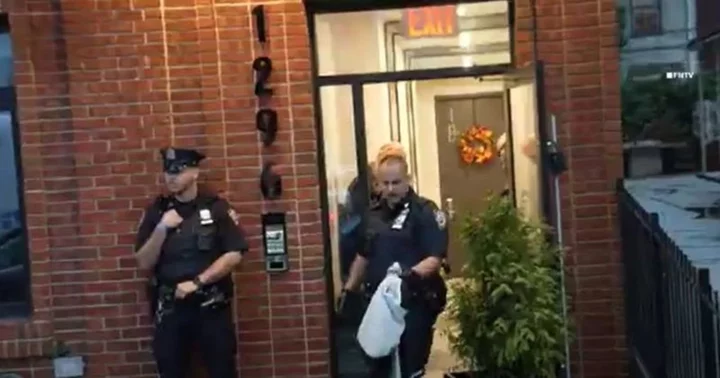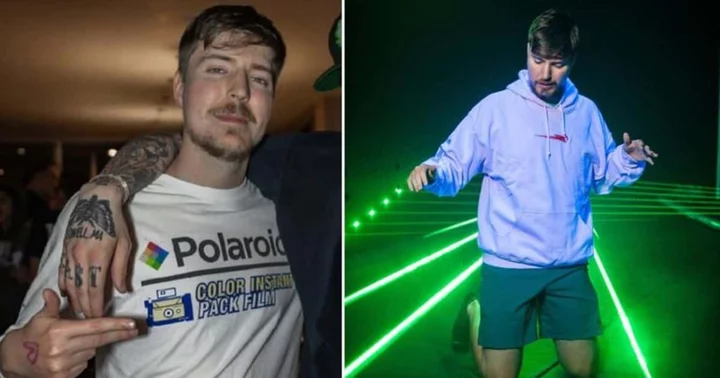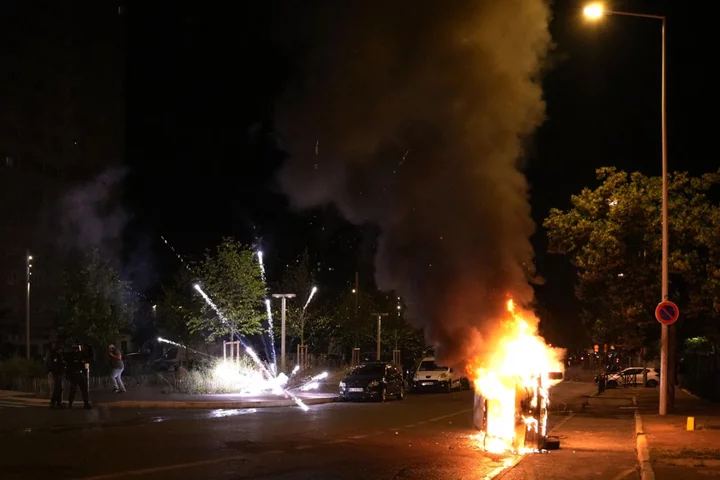Steven Spainhouer is a Second Amendment supporter and a gun owner. But after pulling a bloody child out from under a dead adult -- one of eight killed at an outlet mall in Allen, Texas, on Saturday -- he's ready for a new national assault weapons ban.
"I hear our governor talking about mental health issues," Spainhouer said of Texas Gov. Greg Abbott during a Monday appearance on "CNN This Morning."
"We're always going to have mental health issues. But if we don't do something about the guns, the people-killing guns, then we're going to continue to have the same thing happen," Spainhouer said.
"Until we take some definite actions, we're changing the narrative about it being just a mental health issue and start doing something about the guns," he added.
He equated the kind of imposition an assault weapons ban places on individual rights to limits on certain types of speech. Watch the interview with Spainhouer.
Shootings are the 'noise of daily life'
Rather than moving toward a new assault weapons ban, Americans almost seem used to mass shootings. They are "part of the background noise of daily life," CNN's Stephen Collinson wrote last week after a mass shooting in Atlanta.
"They are part of the national reality -- almost like bad weather -- that causes people to shudder and hope it doesn't affect their neighborhoods or their families before they carry on with their lives."
If the shootings feel somehow normal, so do the post-shooting promises from politicians.
What is the root cause?
As Spainhouer noted, Abbott returned to his familiar post-shooting refrain that it's not gun laws that are needed, but a focus on mental health.
"We've seen an increased number of shootings in states with easy gun laws as well as states with very strict gun laws," Abbott, a Republican, said on "Fox News Sunday."
Abbott said there's an increase in "anger and violence" and the root cause is "mental health problems."
Admitting that Texas has lagged in mental health for years, he said the state has increased funding over the past three years.
"The long-term solution here is to address the mental health issue," Abbott said.
It's an argument that also quietly acknowledges the fact that most gun deaths in Texas are suicides.
But while Abbott argued, correctly, that mass shootings can happen in any state, what he failed to mention is that that there are just simply more gun deaths, including suicides, in states with more lax gun laws. We looked at that data in this newsletter almost exactly a year ago after the Robb Elementary School shooting in Uvalde, Texas.
Another Texas Republican, Rep. Keith Self, also blamed mental health during an interview on CNN on Saturday.
"We have people with mental health, though, that we're not taking care of," said Self, who represents the Dallas suburb of Allen in Congress. "Since this nation made the decision that we were going to close the mental health institutions, many of these situations are based on that."
Multiple previous examples
Questions about mental health have been a theme in Texas shootings.
Devin Patrick Kelley, for instance, killed 26 people with an AR-15-style rifle at a rural Texas church in a mass shooting in 2017. He legally obtained his weapons despite escaping from a mental health facility in 2012 and being convicted of domestic violence. Kelley passed a background check in part because the Air Force failed to enter his conviction into federal databases, according to The New York Times.
Other shooters might never be flagged for mental illness. The Uvalde shooter, Salvador Ramos, was a loner who used a social media app to threaten school shootings in the weeks leading up to his rampage.
Texas ranks last on mental health access
It was a major understatement for Abbott to say that Texas merely lags on mental health.
A report from the nonprofit Mental Health America places the state at or near the bottom of multiple metrics for mental health care. Texas places last in the nation in terms of access to mental health care. It ranks third in terms of prevalence of mental illness.
Using mental health as a 'shield'
Texas State Sen. Jose Menendez, a Democrat, accused Abbott and others of using the mental health issue as a smoke screen to avoid more meaningful change, like implementing a so-called red flag law.
"It appears that using mental health is just a shield in order to not address the issue of what's actually killing the people," Menendez told CNN's Phil Mattingly on Monday, adding he agrees that more should be done for people with mental illness.
"But we also have to do something about what's actually killing the people, and that is these guns, these high-powered guns," Menendez said.
"There's a reason we don't allow people to have grenades and bazookas," Menendez said. "These are weapons of war. And I believe these AR-15 high-capacity rifles are also weapons that belong in the theater of war."
Menendez complained that proposals related to safe gun and ammunition storage and proposals for a red flag law, universal background checks and increased age limits for semi-automatic rifles have no chance in Texas. After Menendez's comments, a bill to raise the age limit for some rifles saw some movement in the Texas House, but it still faces long odds.
No red flag law
Despite Abbot's repeated promises to focus on mental health, Texas has no red flag law -- also known as an extreme risk protection order law -- which would allow authorities to take weapons from a person thought to be in crisis.
The gunman in this most recent mass shooting, Mauricio Garcia, was killed by a local police officer. He does appear to have a history of mental illness. A law enforcement source familiar with the investigation told CNN that Garcia served in the military for a brief period but was removed due to concerns about his mental health.
Garcia was also apparently wearing an "RWDS" insignia -- short for "Right Wing Death Squad" -- on his tactical vest, suggesting at least an affinity for extremist groups. That idea is reinforced by a social media presence in which authorities say he shared neo-Nazi and White supremacist-related posts. Read CNN's full report about Garcia.
Congress did pass legislation last year to encourage states to pass red flag laws, but Texas has not yet followed through. And with a patchwork of laws, even states that pass their own cannot stop weapons from crossing their borders.

